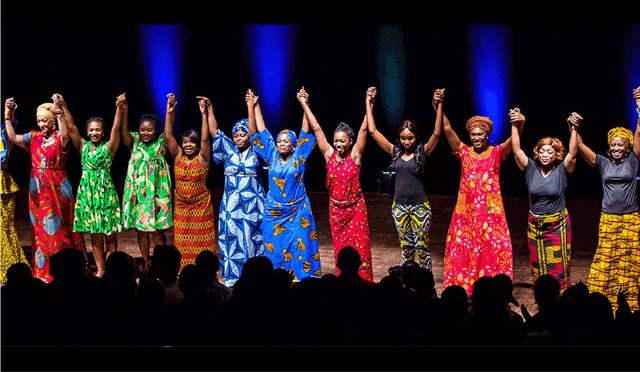Opinion
Of Anthropology And African Society

Anthropology can be defined as the scientific study of people, their societies and culture.
The origin of anthropology can be traced to ancient time when travellers and philosophers speculated about human culture and physical differences which bordered on language, body shape and skin colour from place to place.
The concept of culture was developed out of the need for an objective term to characterise the similarities and wide differences between groups of people. Many people, for example, hold the view that culture is synonymous with development or improvement by training and education. A cultured person, they say, is one who has acquired a command of certain specialised fields of knowledge. On the other hand, persons who are not well educated in these fields, or those of low socio-economic status, are often referred to as uncultured.
The impact of anthropology to the development of African culture became apparent in the middle of last century when English men of science and letters, concerned themselves with the problems of slavery, the treatment of the native people of the empire and the atitude of colonial administration which needed the facts of anthropology to find answers to their position. For instance, in 1838, the Aborigines’ Protective Society was established in London. The academic faction wanted to study native people to find out how they lived and what their opinions were before trying to help them. This group seceded in 1843 and formed the Ethnological Society of London in 1863.
The Anthropological Society of London was highly successful and very popular because of its position on racial superiority. A leading member of the society, Dr James Hunt, argued that science had proved the Black man of African origin to be physically, intellectually and morally inferior to the European man. However, modern anthropologists today have revised the white man’s works and literature in the areas of physical and cultural evolution, human diversity and human race. The Black African man now has new perspective of himself; he now feels equal, if not superior to the white man, who has earlier subjugated him and regarded him as sub-human.
Nevertheless, the Black man admits that he lags behind technologically, but he has the confidence in himself to know that given the opportunity to utilise his potentiality and resources, he will develop and advance in his own way, perhaps a better or more desirable way.
However, to maintain the tempo in the development of African culture, African leaders should give the training of anthropologists the desired reference since it is their fact findings that mostly determine the development of the culture of a people.
Culture, according to modern anthropologists, is not restricted to one specialised field of knowledge nor is it the attribute of persons who have good manners, but should encompass language, means of making a living, arrangement of family life, the focus of group loyalties and ways of perceiving the world, both the physical world and the world beyond.
It is also important to note that culture puts control on man’s drives; it influences his eating habits, hours of sleep, display of emotion and sexual behavior.
Edward Taylor, an eminent scholar (1871), saw culture as a complex whole which includes knowledge, belief, art, morals, law, custom and any other capabilities and habits acquired by man as a member of a given society.
The fact that the culture of a given society is bound to change over a period of time is apparent when one considers the present developmental stage of Africa. Indeed, there have been significant changes in the aspect of the African culture; even some of our institutions are undergoing drastic changes. This is attributable to the area of consciousness gained in the study of anthropology by Africans because in the early times, most investigations into psychological developments were carried out by psychologists in Euro-American societies. This raises the question of whether or not the results of such investigations are valid or applicable for societies worldwide.
Most of the major African universities now offer courses in general anthropology which hitherto was in the department of sociology. Some universities in Nigeria have joint departments of sociology and anthropology.
A good number of state and federal universities today also offer overseas scholarships in the study of anthropology so as to achieve the great status expected for the development of African culture.
The creation of a separate ministry of culture and tourism by the Federal Government is no doubt the recognition of the social and economic importance of culture in the advancement of our nation as an African country.
Fuayefika, a commentator on social issues, writes from Port Harcourt.
Tonye Fuayefika
Opinion
NDDC: Time To Illuminate Homes

Opinion
When Democracy Becomes Too Expensive

Opinion
Righteous Leadership Still Thrives

-
Politics4 days ago
2027: NIGERIANS FAULT INEC ON DIGITAL MEMBERSHIP REGISTER DIRECTIVE
-

 Environment4 days ago
Environment4 days agoLAWMA Director Says Sweeping Reforms Have Improved Waste Collection
-
Politics4 days ago
LP Crisis: Ex-NWC Member Dumps Dumps Abure Faction
-

 Politics4 days ago
Politics4 days agoUmahi Dismisses Allegations On Social Media, Insists On Projects Delivery
-

 Sports4 days ago
Sports4 days agoAbia Not Sure To Secure continental Ticket
-
Politics4 days ago
NATASHA ELECTRIC VEHICLES INITIATIVE IN KOGI CENTRAL
-
Sports4 days ago
La Liga: Yamal Records First Career Hat-trick
-

 Sports4 days ago
Sports4 days agoPSG Extend Lead In Ligue 1

